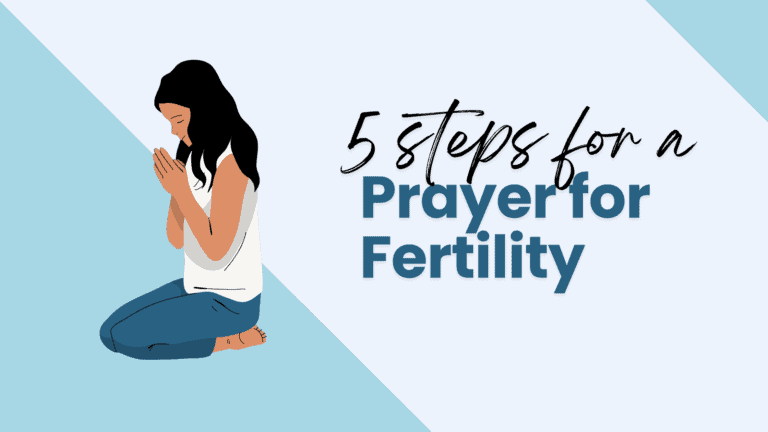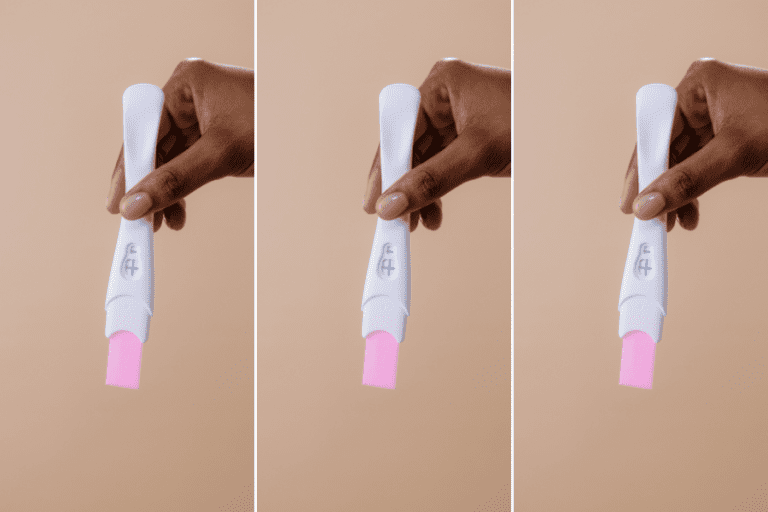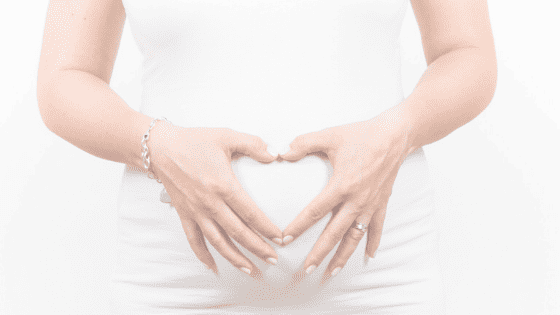A Complete Guide: When To Get Pregnant

Last Updated on March 6, 2024 by Avi Steen
Are you thinking about having a baby but not sure when’s the right time?
It’s a big decision, and there are a few important things to think about before you start.
Hi there, I’m a nurse and a certified fertility doula, and I’m here to help you figure it all out! We’ll talk about stuff like when your body is ready to have a baby, the best age to have one, and some tips for making it happen.
So, get comfy, and let’s explore the exciting world of getting ready for a baby!
Factors to Consider Before Getting Pregnant
When planning to get pregnant, there are essential factors to consider to ensure a smooth journey towards parenthood and a healthy pregnancy.
- Factors such as age, health, financial stability, and relationship status play crucial roles in the preconception phase.
- Maternal health before conception significantly impacts the development of the baby and the overall pregnancy experience.
Younger individuals tend to have higher fertility levels compared to those in advanced maternal age, highlighting the importance of age in the conception process.
Financial stability ensures access to quality prenatal care and support during the fertility journey. Relationship status can also influence emotional well-being during this significant life transition.
Age
Age plays a crucial role in fertility and pregnancy, with different age ranges presenting varying challenges and considerations for conception.
Generally, women are most fertile in their 20s, with the late 20s to early 30s considered the optimal age range for conception. This period, known as the fertility window, typically offers the best chances of natural conception without the need for assisted reproductive technologies.
As women age, especially after 35, fertility starts to decline due to a decrease in the quantity and quality of eggs. Advanced maternal age can increase the risk of pregnancy complications, such as chromosomal abnormalities and miscarriages, underscoring the importance of assessing pregnancy readiness before planning for a baby.
Health and Lifestyle
Maintaining a healthy lifestyle and prioritizing preconception care are essential steps in preparing your body for pregnancy and ensuring optimal reproductive health.
By incorporating healthy habits into your daily routine, such as staying active, eating a balanced diet, and managing stress levels, you set a solid foundation for fertility.
Engaging in fertility awareness practices allows you to better understand your menstrual cycle and ovulation, boosting your chances of conception.
Preconception care routines help identify and address any potential health issues that could impact fertility, setting you up for a successful pregnancy journey.
Taking proactive steps now not only enhances fertility but also promotes overall maternal well-being for the future.

Financial Stability
Financial stability is a key factor to consider before embarking on the journey of parenthood, ensuring that you can provide for your future child’s needs and well-being.
In addition to financial stability, it’s essential to also address the importance of proper resource allocation and financial planning. This includes setting aside funds for prenatal care, medical expenses, childcare, and education.
Planning ahead can alleviate stress and uncertainty during the pregnancy journey. Being prepared mentally and emotionally is crucial for parenting readiness. This involves making conscious decisions about your desire for children and assessing your capability to nurture and support them.
Factors like fertility preservation and understanding pregnancy chances play a significant role in shaping your parenting decisions.”
Relationship Status
The stability and quality of your marriage can significantly impact your readiness for parenthood and the emotional support available during the conception journey.
Effective communication plays a crucial role in baby planning as it involves discussing important aspects like parental age, lifestyle adjustments, and expectations. Misunderstandings or lack of communication on such topics can lead to conflicts and hinder the decision-making process.
Being emotionally ready for parenthood involves a deep understanding of the responsibilities and challenges that come with raising a child. Acquiring conception knowledge, such as understanding ovulation cycles and fertility factors, also contributes to making informed decisions about starting a family.
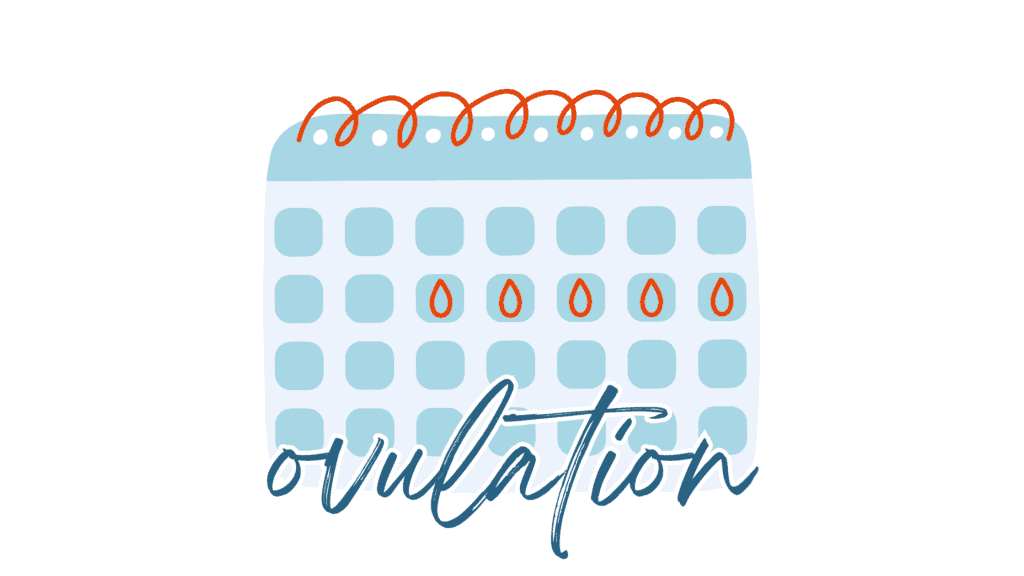
Signs of Fertility and Ovulation
Understanding the signs of fertility and ovulation is crucial for optimizing your chances of conception and identifying your most fertile days within the menstrual cycle.
One common indicator of ovulation is changes in cervical mucus, where it becomes clear, slippery, and stretchy, resembling egg whites. This type of cervical mucus indicates that ovulation is approaching, and it creates an optimal environment for sperm survival and transportation.
Tracking basal body temperature shifts can also provide valuable insights into your fertility window. A slight rise in basal body temperature after ovulation occurs, signaling that your fertile window has likely passed.
Physical symptoms like breast tenderness, bloating, and a heightened sense of smell are other subtle indicators of conception readiness.
Changes in Cervical Mucus
Monitoring changes in cervical mucus can provide valuable insights into your fertility window and help in timing intercourse for optimal chances of conception.
These changes in cervical mucus consistency and appearance are closely tied to your menstrual cycle, particularly around ovulation. Understanding these variations is crucial in pregnancy planning, as fertile cervical mucus creates a hospitable environment for sperm survival and transport.
Healthcare providers often use observations of cervical mucus patterns as part of fertility assessments, alongside other methods such as ovulation predictor kits. Hormonal influences on the reproductive system play a significant role in the quality and quantity of cervical mucus produced, reflecting various fertility factors that impact conception potential.
Basal Body Temperature
Tracking basal body temperature fluctuations can assist in pinpointing ovulation, aiding in fertility tracking and contraception methods based on menstrual cycle patterns.
This information is particularly crucial for couples trying to conceive as monitoring basal body temperature shifts helps determine the most fertile days of a menstrual cycle, increasing the chances of conception.
Knowledge of these temperature changes can aid in the early detection of pregnancy by observing sustained high temperatures beyond the expected ovulation period. Understanding these fertility guidelines can empower individuals to make informed decisions regarding their reproductive health and family planning, offering valuable insights into the gestational age and pregnancy timeline.

Ovulation Predictor Kits
Ovulation predictor kits offer a convenient way to predict ovulation, aiding in fertility treatments, conception planning, and attending conception workshops for further guidance.
These kits are particularly useful for individuals trying to conceive as they help in determining fertile days, and optimizing the chances of successful conception. They can also play a crucial role in fertility counseling, guiding couples through the various stages of the fertility journey.
By utilizing ovulation predictor kits, individuals can track their menstrual cycles and better understand their reproductive health, aiding in fertility testing and enabling them to seek appropriate medical assistance if needed. Engaging in educational workshops on conception further enhances one’s knowledge about fertility and pregnancy resources.
Physical Symptoms
Recognizing physical symptoms like breast tenderness or ovulation pain can aid in understanding your body’s fertility signals and support you in your journey toward parenting preparation.
Paying attention to other fecundity indicators, such as changes in cervical mucus consistency and basal body temperature, can further enhance your awareness of ovulation and optimal fertility windows.
It’s essential to also assess your parenting readiness aspects, including emotional readiness, financial stability, and the establishment of a solid parenting plan.
Seeking fertility support systems, such as undergoing fertility evaluations to check for any potential issues affecting embryo implantation, can provide valuable insights and guidance on your fertility journey.

When is the Best Time to Get Pregnant?
Determining the best time to get pregnant involves understanding your optimal fertility window, tracking your menstrual cycle, and implementing effective conception strategies.
The ideal age range for fertility is typically between the late teens and early thirties, as this is when women are most fertile. In a menstrual cycle, the most fertile days are usually around ovulation, which occurs approximately 14 days before the start of the next period.
Factors that influence fertility include lifestyle habits, such as diet and exercise, as well as underlying health conditions. To support couples in their parenting decision journey, many fertility programs and pregnancy seminars offer guidance on optimizing fertility and increasing the chances of conception.
Optimal Age Range for Fertility
The optimal age range for fertility varies for individuals and is influenced by fertility factors, personal fertility journeys, and considerations related to the timing of parenthood.
Factors such as overall health, genetics, and lifestyle choices play significant roles in determining fertility potential. It is essential for individuals to be proactive in their reproductive health by attending fertility classes, seeking guidance from parenting programs, and utilizing fertility resources.
Each person’s fertility journey is unique, shaped by their age, relationship status, and desire for children. Understanding the impact of age on fertility can help individuals make informed decisions about family planning and the timing of parenthood.
The Most Fertile Days in a Menstrual Cycle
Identifying the most fertile days in your menstrual cycle is essential for maximizing your chances of conception and aligning intercourse with your peak fertility period.
Understanding your menstrual cycle and the signs of ovulation can help you pinpoint when you are most fertile. By charting changes in your basal body temperature, cervical mucus, and menstrual cycle length, you can identify the prime time for conception.
Engaging in fertility awareness programs or attending fertility seminars can further deepen your knowledge of optimizing fertility. It’s also crucial to maintain a healthy lifestyle, including a balanced diet and regular exercise, to support your reproductive health and overall well-being.
Factors That Can Affect Fertility
Various factors, such as medical conditions, lifestyle choices, and environmental influences, can impact fertility and require consideration when planning for pregnancy.
Medical conditions like polycystic ovary syndrome and endometriosis can affect fertility, while lifestyle choices such as smoking, excessive alcohol consumption, and poor diet can also play a role. Environmental factors like exposure to toxins or radiation can further complicate the process. It’s crucial for individuals or couples to assess these factors before attempting to conceive.
Attending fertility workshops can provide valuable information on improving fertility health and reducing pregnancy risk factors, offering support and guidance for those interested in starting or expanding their families. Expectant parents can also benefit from programs designed to help them navigate the journey of pregnancy, including prenatal care, birthing classes, and postpartum support programs.
How to Track Your Fertility and Ovulation
Tracking your fertility and ovulation cycles through methods like charting, ovulation predictor kits, and fertility awareness can aid in achieving natural conception and planning for parenthood.
By understanding your body’s natural rhythm, you can pinpoint the most fertile days within your menstrual cycle and increase the chances of successful conception. It is crucial to consider factors such as parental age, as age can play a significant role in fertility.
Seeking out conception resources, such as fertility clinics or online support groups, can provide valuable information and emotional support on your journey to parenthood.
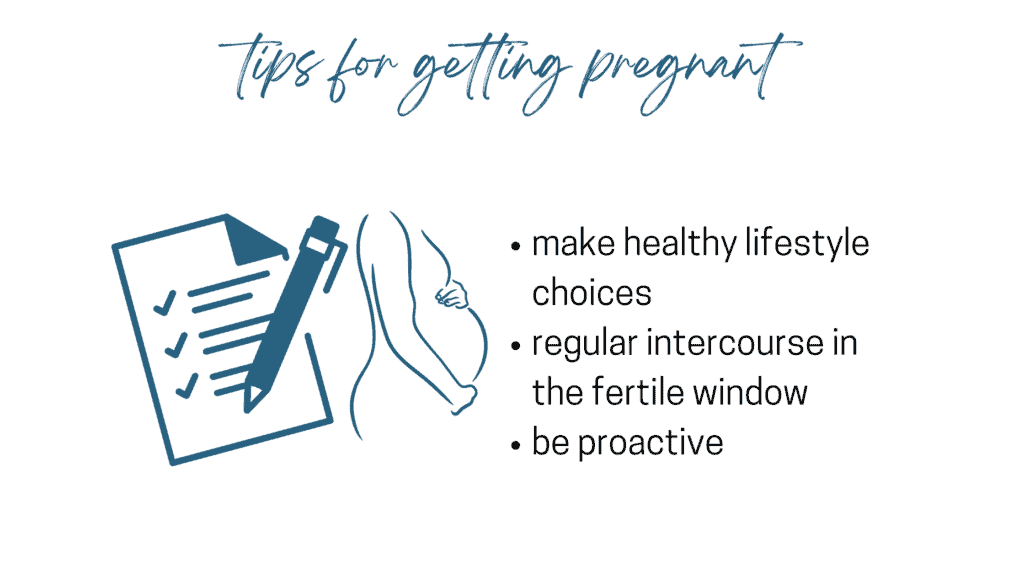
Tips for Getting Pregnant
Embarking on the journey to parenthood requires certain tips and strategies to enhance your chances of conception and prepare for the exciting stages of pregnancy.
- Making healthy lifestyle choices, such as maintaining a balanced diet and engaging in regular exercise, can significantly boost your fertility prospects.
- Considering regular intercourse during your most fertile days can increase the likelihood of conception.
- If you encounter difficulties conceiving, don’t hesitate to explore fertility treatments or attend conception classes to further educate yourself on optimizing your chances of becoming parents.
- Being proactive and informed about your options will not only increase your pregnancy prospects but also ensure that you’re ready for the joys and challenges of parenting ahead.
Maintain a Healthy Lifestyle
Adopting a healthy lifestyle encompassing balanced nutrition, regular exercise, and stress management is vital for optimizing fertility and preparing your body for pregnancy.
Prioritizing your well-being by incorporating these habits not only enhances your chances of conception but also sets a strong foundation for a healthy pregnancy.
In addition to personal efforts, consider seeking guidance from parenting readiness programs, which offer valuable support and information on preparing for the journey ahead.
Participating in pregnancy programs can provide essential education on prenatal care and childbirth while exploring fertility classes can help you understand your reproductive health better and empower you to make informed decisions.
Have Regular Sexual Intercourse
Regular sexual intercourse during your fertile days increases the likelihood of conception, aligning with fertility awareness practices and considerations for optimal parenthood timing.
Fertility testing can provide valuable insights into your reproductive health, helping you identify any potential issues that may affect your ability to conceive. By understanding your fertility window and planning intercourse strategically, you are better equipped to embark on the journey of pregnancy preparation with confidence.
Attending parenting classes can offer guidance on various aspects of child-rearing, from prenatal care to early childhood development, ensuring that you are well-prepared for the responsibilities of parenthood.
Consider Fertility Treatments
In cases of infertility or difficulty conceiving naturally, exploring fertility treatments and consulting healthcare providers specializing in reproductive health can offer potential solutions.
This can include options such as in vitro fertilization (IVF), intrauterine insemination (IUI), or fertility medications.
It’s important to understand the role of fertility hormones in the process, as they play a crucial role in regulating ovulation and optimizing the chances of successful conception.
Participating in parenthood workshops can provide valuable insights and support for couples navigating the complexities of fertility challenges. Pregnancy education and baby planning classes can also offer practical guidance on preparing for pregnancy, childbirth, and caring for a newborn.
So there you have it!
Starting a family is a big step, but with the right information and support, you can feel confident in your decision. Remember, everyone’s journey is different, and it’s okay to take your time and make sure you’re ready.
Whether you’re just starting to think about it or you’re actively trying to conceive, know that you’re not alone. Take care of yourself, listen to your body, and trust that everything will happen when the time is right.
Good luck with your exciting journey ahead!
Frequently Asked Questions
When is the best time to get pregnant?
The best time to get pregnant is when you and your partner are emotionally and financially ready to have a child. It’s also important to consult with your doctor to ensure you are in good health and your body is ready for pregnancy.
How do I know if I am ovulating?
There are a few ways to track your ovulation, such as using an ovulation predictor kit, tracking your basal body temperature, or monitoring changes in your cervical mucus. Consulting with your doctor can also help determine when you are most likely to ovulate.
What are the risks of getting pregnant at a later age?
As women age, their fertility decreases, and the risk of complications during pregnancy increases. This includes a higher chance of miscarriage, gestational diabetes, and high blood pressure. It’s important to consider these risks when planning the timing of your pregnancy.
Is there a specific age range for when to get pregnant?
There is no specific age range for when to get pregnant, as every woman’s body and circumstances are different. However, it’s generally recommended to have children before the age of 35 to minimize potential risks and complications.
Can medications affect my ability to get pregnant?
Some medications, such as certain types of birth control, can affect your fertility and make it harder to conceive. It’s important to discuss your medications with your doctor if you are planning to get pregnant, as they can provide guidance on when to stop or switch medications.
Should I wait to get pregnant after a miscarriage?
It’s important to give your body time to heal after a miscarriage before trying to get pregnant again. This can range from a few weeks to a few months, depending on individual circumstances. Consult with your doctor for guidance on when it is safe to start trying to conceive again.

Octavia Steen is an NBDA certified fertility doula, health coach, certified fitness nutrition specialist, aspiring missionary with the COGIC, and owner of Mother Mindset. She helps future and current mamas become more consistent in faith + fitness and grow closer to God so they can create a healthier lifestyle from the inside out!



